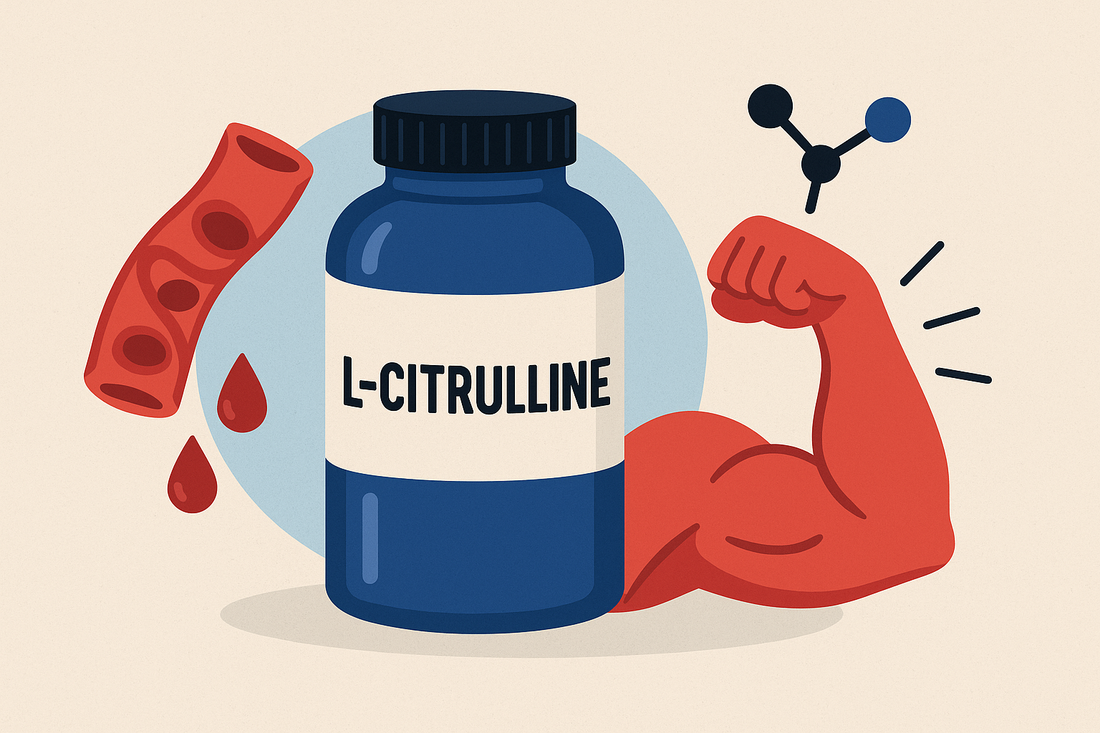
L-Citrulline and endurance sports: an underestimated ally?
Share
Certain supplements may be necessary to support sportsmen and athletes, particularly in endurance sports. The L-Citrulline is an amino acid of growing interest in the world of sport. It can quickly become your ally in performance enhancement, thanks to its vascular and energy-boosting effects.
L-Citrulline: a must for athletes
L-Citrulline is a non-essential amino acid, meaning that it is produced naturally by the body through adequate nutritional intake. The difference between essential and non-essential amino acids lies in the nutritional value of foods.
So this non-essential amino acid can be taken as a supplement to boost the body's natural production of L-Citrulline.
L-Citrulline improves vasodilatation of blood vessels, enabling the blood to irrigate the body and maintain a sufficient flow. This mechanism is of particular interest to sportsmen and women, as it promotes better blood circulation and a more intense supply of oxygen and nutrients to the muscles involved.
Unlike L-arginineoften used as a supplement for the same effects, L-Citrulline is more bioavailable. It is more stable as it passes through the intestine and liver. This means that the digestive system does not totally destroy these molecules in order for them to be properly absorbed by the body and have the expected effects.
In endurance sports, L-Citrulline can be particularly useful in sessions requiring particularly intense effort.
Endurance performance: what the science says
The effects of L-Citrulline on endurance performance have been the subject of several studies, with interesting results. Some studies have demonstrated a moderate improvement in VO2 max (maximum amount of oxygen used during exercise), a reduction in fatigue and a delay in the onset of exhaustion. a delay in the onset of exhaustionparticularly during prolonged and repeated efforts.
For example, tests on cyclists or runners have shown an improvement in time to exhaustion or a sensation of less "heavy" legs at the end of effort. However, other studies have found no significant difference compared to a placebo, underlining the importance of protocols.
This applies both to the dose administered (often between 6 and 8 g), the duration of intake and the form used, such as L-Citrulline alone or citrulline malate, which can strongly influence results.
Research tends to show that L-Citrulline works best in certain situations, such as in well-trained athletes, or in extreme conditions such as extreme heat or altitude. So it's not a miracle product, but rather a useful support in specific contexts.
The benefits of L-Citrulline for athletes and endurance
One of L-Citrulline's main assets is its ability to stimulate the production of nitric oxide (NO), an essential molecule in the vasodilatation process. This phenomenon opens up blood vessels, facilitating the flow of oxygen and nutrients to the muscles involved during exercise. One of its assets is therefore its resistance to muscular fatigue, particularly during prolonged exertion.
Some hypotheses also suggest a reduction in lactate accumulation, responsible for the sensation of muscle burn. Compared with other NO "boosters" such as beet nitrate, L-Citrulline has the advantage of being better tolerated and more stable in the digestive process.
But its effects don't stop at performance, as L-Citrulline may also improve recovery after exercise. Studies suggest a reduction in muscle soreness and pain after intense sessions. It also plays a role in the elimination of ammonia, a metabolic waste product linked to fatigue and muscle regeneration.
Good recovery enables you to continue training with significant progress for all hardy athletes.
